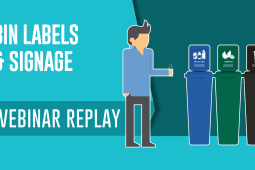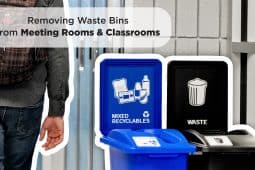Water bottles have become so synonymous in our daily lives that one can be forgiven for forgetting that the plastic bottle industry didn’t exist thirty years ago. The term “Bottle Bill” is a bit of a misnomer. When these laws were instated back in the late seventies and early eighties, plastic bottles were a far off convenience and yet to become an environmental nightmare. Only glass bottles and cans are currently covered under the various bottle bills which have remained the same since they were signed to law decades ago.
So how does a bottle deposit system work? Consumers pay a small deposit (usually 5 or 10 cents) on each beverage bottle they purchase, which is then refunded when the bottles are returned to a recycling center.
Currently there are 10 states that have a bottle bill in place – Massachusetts, New York, Connecticut, Vermont, Oregon, California, Maine, Michigan, Iowa, and Hawaii.
Canada also has similar bottle bills in effect that vary by province – many provinces cover all alcohol and non-alcohol containers, while some only cover alcohol containers.
British Columbia was the first to enact a bottle recovery system in North America in 1970, followed shortly by Oregon in 1971.
Bottle bills have proven to be one of the most effective methods of diverting trash from landfills since recycling became a part of everyday life–and the numbers do not lie. Take Massachusetts as an example. An astonishing 80 percent of beverage containers are recycled in the Bay State compared to juice and water bottles, which aren’t covered by deposits, at only 23 percent. It’s quite evident that getting that deposit back is a worthwhile incentive for the Massachusetts community.
Once the bottle bills were implemented, seven out of the ten states reported a decrease in beverage container litter ranging from 70 to 83 percent, and a reduction in total litter ranging from 30 to 47 percent!
Bottle bills carry more positives besides a high rate of waste diversion – the 10 states with deposit systems in place have seen a growth in new jobs by the tens of thousands.
Most of the time recycled material becomes contaminated or suffers from breakage, which ultimately ends up being tossed out. A deposit system lowers the rate of breakage and contamination supplying plastic, aluminum and glass in a much purer form that goes right into manufacturing new beverage containers.
In fact, most of the supply of recycled glass that goes into manufacturing bottles in the United States comes from the 10 bottle bill states.
While these laws have proven to be an effective way to control waste, many of them were passed when recycling was just in its infancy and need to be expanded in order to keep the pace with changes in the beverage container market – for instance, water readily available in plastic bottles and sports drinks were non-existent 30 plus years ago and now account for a large portion of beverage containers that are being consumed.
Massachusetts is currently in the process of its expanding its bottle bill law to include a five cent deposit on all water and sport drink containers, which is estimated to save cities and towns in the state an estimated $7 million a year in trash pick-up and waste disposal costs.
Voters will get to decide on November 4th whether or not to expand the bill or keep it as it is. The expansion of bottle bills in other states might hinge on the decision made by the people of Massachusetts.









